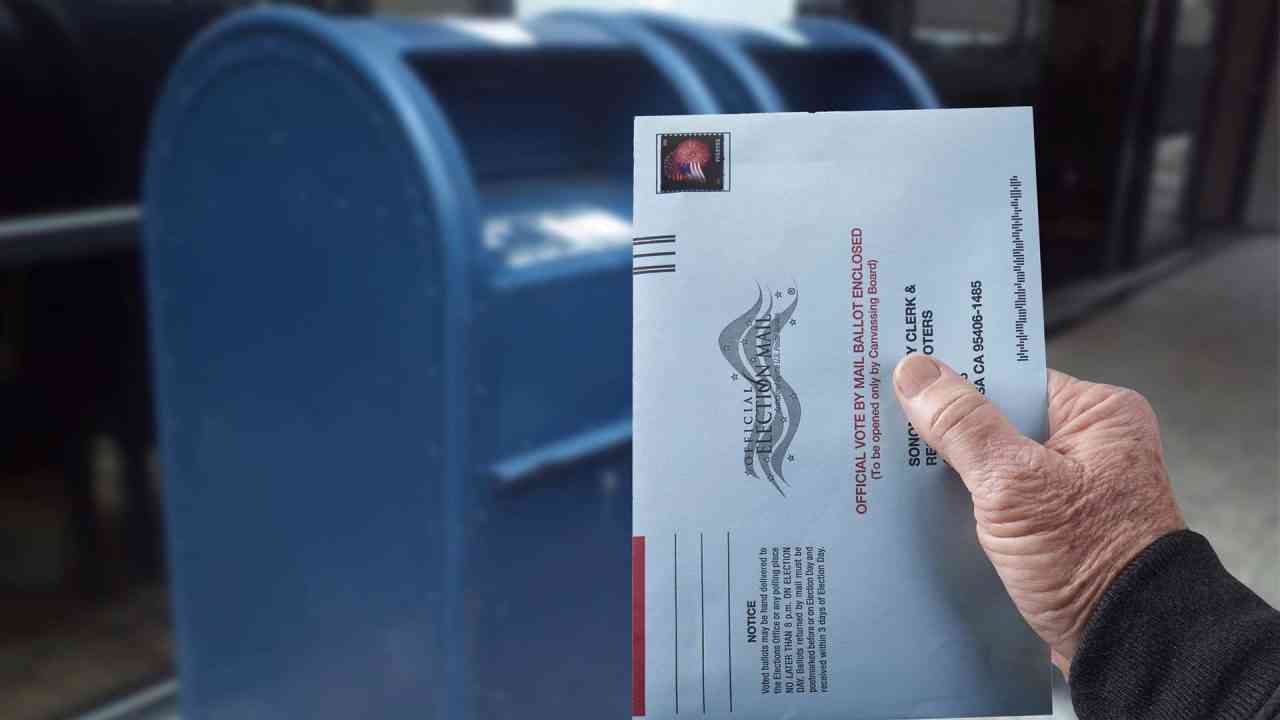
Editor’s note: This article is republished with permission from the Alaska Policy Forum.

The special election to fill the remainder of late Congressman Don Young’s term is a perfect storm of confusion for most Alaskans, devastating trust in our elections.
The special statewide primary election to determine the final four candidates will be held by mail, culminating on June 11. Ballots are being sent automatically to voters who were registered at least 30 days before the election and will require signatures from the voter and a witness. The first mail ballots were sent to overseas voters on April 27.
Historically, in order to vote by mail (via absentee ballot), voters were required to submit absentee applications, complete with signatures that could be used for verification purposes. Mailing ballots automatically as is occurring in the Congressional special election means there is no signature on the application against which to compare the final ballot signature of the voter.
Then, the special election at which voters will choose a representative to finish Congressman Young’s term will be held on August 16 — on the same day and possibly using the same ballot as the primary election for the regular general election, at which voters will choose a representative for a full term.
A “perfect storm” occurs when multiple rare phenomena come together at the same time with a terrible effect.
Aside from logistics, this is the first election since a citizens’ initiative completely changed Alaska’s voting system by a slim margin in 2020. First, voters will mark the ballot with one candidate in the by-mail open primary. The top four vote-getters from the primary election will advance to the August in-person general election, which will utilize ranked-choice voting (RCV) of those four candidates and a write-in option. Keep in mind that the primary field is extremely crowded, with 48 candidates.
All of this cost, effort and confusion will elect a representative who serves for only a few short months.
The Division of Elections claims the mail-in portion of the election is largely due to staffing issues and the short notice. As Gail Fenumiai, director of the Division of Elections, communicated to APF on April 8:
[A] special primary must be conducted no later than 90 days from the date [of] vacancy. We start preparing for the August primary in January. An in person election involves over 3,000 workers (poll workers, early and absentee voting officials, multiple review boards and temporary staff). It was not possible to hire the required number of workers, provide adequate training, test and deploy equipment during that condensed time line.
Given the strains of preparing for and conducting a regular election at the same time, the administration may see a mail-in election as the only option. But mail-in ballots — at least those exempt from the standard requirement to apply for absentee ballots — are more susceptible to fraud, errors, and misdirected mail.
The errors to which mail-in ballots are prone have the potential to nullify votes that would be counted if poll workers were available to answer questions and help to catch mistakes. Furthermore, in the federal general elections between 2012 and 2018, 28.3 million mail ballots disappeared in the hands of the U.S. Postal Service. In one local Alaska election, 8% of by-mail ballots were rejected, partially due to issues with the U.S. Postal Service. Even mailing ballots from a ballot printer in Washington State to Anchorage for a municipal election resulted in more than 16,000 undeliverable ballots.
Worse, because Alaskans are automatically registered to vote with an eligible Permanent Fund Dividend application, Alaska’s voter rolls likely contain voters who are no longer eligible. Dead voters, voters who have moved out of state, and voters with changed citizenship should not automatically receive ballots in the special election. Nor should voters who were ineligible in the first place or submitted multiple registrations. Requiring voters to request absentee ballots would have helped avoid the problems inherent in outdated voter rolls, especially on a short timeline.
ALASKA WATCHMAN DIRECT TO YOUR INBOX
Without any absentee application signature for comparison, a signature and a witness on the ballot do little to ensure the person who filled out a ballot was the actual voter. The Division of Elections should have required every voter who wanted to participate in the election to request an absentee ballot through an application — as in any other election — so that ballots questioned based on signature discrepancies can be verified. 48% of ballots cast were absentee by-mail in the general election of 2020, which required an application; why shouldn’t Alaskans have had to request absentee ballots this time?
The logistics of a statewide by-mail special election are complicated enough, and some Alaskans may never have voted by mail before. On top of that, most Alaskans are still learning the process of RCV, with its ill-considered consequences. These complications will compound if the special and general elections are on the same ballot in August: the bifurcated ballot will have both a special election chosen by RCV and a general primary election instructing voters to choose only one!
Even without all of this procedural noise, Alaskans might find it challenging to sort through the 48 candidates in the primary, and carefully consider the policies of the top four choices for the general election — all in less than two months.
A “perfect storm” occurs when multiple rare phenomena come together at the same time with a terrible effect. That is exactly what the immediate election season is promising to bring. For Alaskans to have confidence that the brief tenure of Congressman Young’s initial successor is founded in a fair vote of the people, the Division should have done everything possible to ensure a trustworthy and transparent election. Hopefully, the Division will steer clear of the storm next time.
The views expressed here are those of the author.








7 Comments
In this latest travesty we take a further step away from being a nation of laws to becoming ever more a nation of men. The Division of Elections is charged with conducting special elections. Our state laws require this of them. And yet, as soon as we ask them to actually do it, they tell us they can’t.
Appointed bureaucrats should not be vetoing our laws by their refusal to implement them and their willingness to approve waivers justifying their refusal to act. Will any in the current administration speak to this disgrace and how they will ensure that it never happens again?
Like the hacking of our Division of Elections?
Like their acquiescence to the courts when unelected judges sought to rewrite our state laws for the 2020 election?
Waiting. Still waiting.
Coincidentally, the movie “2000 Mules” came out last weekend and it documents just how fraudulent mail-in ballots like these can be used to change the results of an election. If you accept the evidence presented in this movie, the result of the 2020 presidential election was changed by falsely submitted mail-in ballots. What makes us think that we are immune to the same sort of shenanigans here in Alaska? An all-mail-in election is a joke, and we are fools if we trust it.
I’m confused, did not Governor Murkowski appoint his daughter to the Senate to fill the remainder of his term in the Senate? Why didn’t Governor Dunleavy appoint someone to fill Young’s seat?
Good question. The sitting governor, whichever party should have the power to do so. We are now without any representation in the people’s house, nor do we have.an advocate to help us when we have to deal with federal government problems; a situation I find myself in right now trying to get a straight answer from Medicare on a situation that could cost me tens of thousands of dollars if not rectified.
I also have a few questions and suggestions about this entire matter. Steve Steve, made a valid point that would be interesting to here an answer too. Also, this is a position that was to be held by a Republican until the next official election. Therefore, why are we entertaining the filling of this seat by any other party? Alaskans voted a Republican into this seat to represent us in Washington. Did I miss something?? It would bode well for Alaska, to take a common sense approach to our elections. There needs to be State legislation to make into law that, votes will be submitted in person with I.D., The votes will be hand counted under secure conditions, There will be no absentee mail in voting unless you are military and your residency was Alaska prior to enlistment, you will either vote in advance if possible, or forfeit your voting privilege, it was your choice not to be there, and when the polls close they are closed. Clearly, Mail in votes and the use of computers are a very corruptible formula. The process may be slower, but in the end it will be the fairest way to ensure accuracy. As far as the RCV, it’s the most ridiculous process ever concocted. Alaska, needs to stand above the non-sense of the lower 48, and make common sense laws to ensure accurate, fair elections.
I agree except that some of us, like myself, are unable to either access physical voting places or stand in the lines, due to physical limitations. I used to be able to do this, but no longernan able. I need access to absentee ballots and am suggesting some sort of system that insurers this as well asnthe validity of my vote.